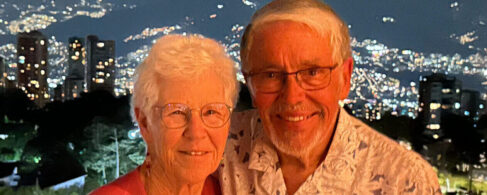More on Singapore
I’ve thought of other things we learned about Singapore. I’d like to record them before my ancient brain loses them entirely.
Singapore is, in theory a democracy. Parliamentary elections are held every now and then with opposition parties challenging the ruling Peoples’ Action Party. But the PAP and its controlling family have been in the overwhelming majority since 1959, before independence and while Singapore was still a part of the British Empire. It’s been deemed the least corrupt nation in Asia but is ranked quite low in terms of human rights.
We’re told that Singapore ranks quite low against other nations in terms of free speech. Someone challenging the ruling party must have strong proof to avoid penalty for slander. Su Ling says that Singapore citizens are quite soft spoken, a habit developed to avoid being overheard with views that could be considered contradictory.
On the surface, at least, Singapore seems to be a prosperous, clean, well-maintained country. Certainly, it is up to first-world standards and then some. Employers and workers are required to pay into a social security fund that covers old age pensions, health care, housing and other aspects of economic life. Private insurance to supplement the government program are available. Schools today are completely integrated. Before independence, schools were segregated by ethnic identity – Chinese, Indian, Malay, and so on. There are perhaps 1,000 homeless people out of 5.8 million in Singapore.
Singapore prides it’s religious and ethnic tolerance and integration. We certainly saw no evidence of problems of that sort. Sure, there are neighborhoods of various ethnic groups, but mostly for convenience of language, religion, food preferences and so on.
Eighty percent of housing in Singapore is owned by the government. The government extends 99 year leases. Lease holders must maintain the lease for five years before being able to sell the lease on the open market, often at a profit. Most government housing is in multi family high rises. Single family houses are available but sell at a premium and are often owned for rent to expats living in Singapore.
Singapore maintains a strong military, necessary, it is felt, given the geopolitical environment in which it is situated. Hugues, from Switzerland, says Singapore military trains in Switzerland and in return Switzerland has been granted land in rural Singapore. Switzerland is the largest foreign land holder in the country of Singapore.
Singapore’s weather is hot and humid, thanks to its proximity to the equator and prevailing weather patterns. It is protected from extreme weather such as typhoons, tidal waves, etc. It is not prone to earthquakes.
It’s not a cheap place to live, especially in the city center and tourist locales, such as the Marina Sands Resort Hotel. On the other hand, breakfast for four in the modest coffee shop we patronized yesterday cost about $15 – for four people. Housing seems to be in the $200,000 – $1,000,000 range. Not outlandish.
So, what’s not to like? Why should anyone need complain?
I’ve added a few more pictures from Su Ling but mostly of the three of us so don’t break your neck hurrying to go back and see them.

As always, a great introduction and information about one of your stops in your trip! Sounds like an interesting country, seems as though the populace functions well with the laws and traditions of their society. Thanks again for sharing! Love the airport humor as well!😎